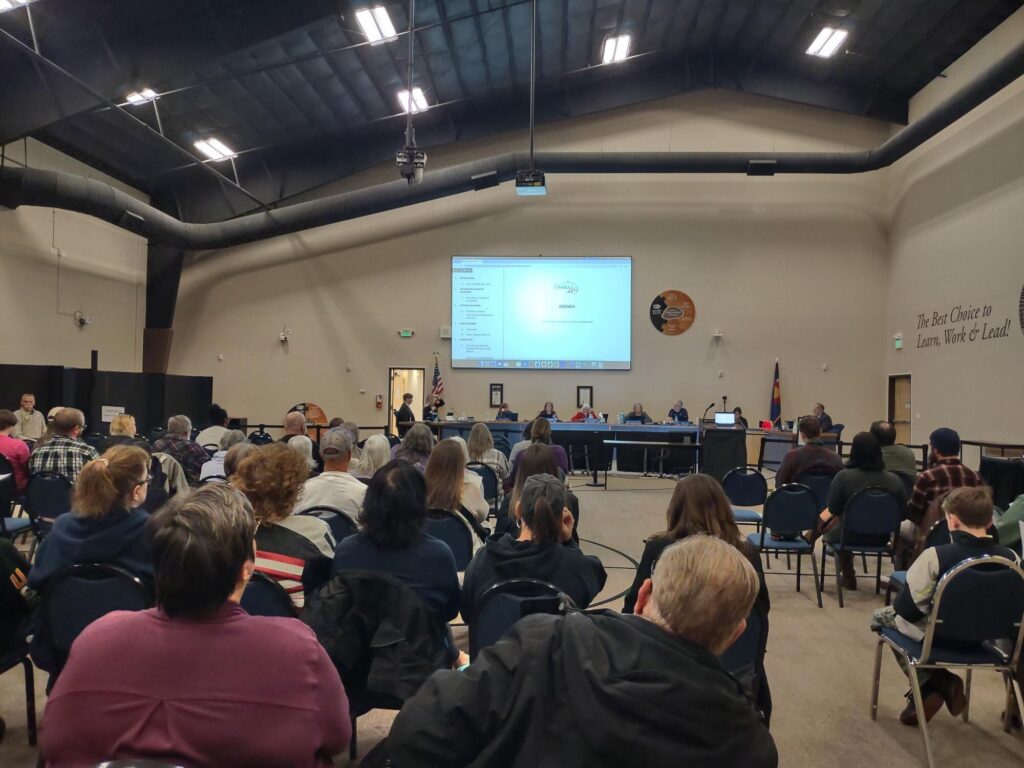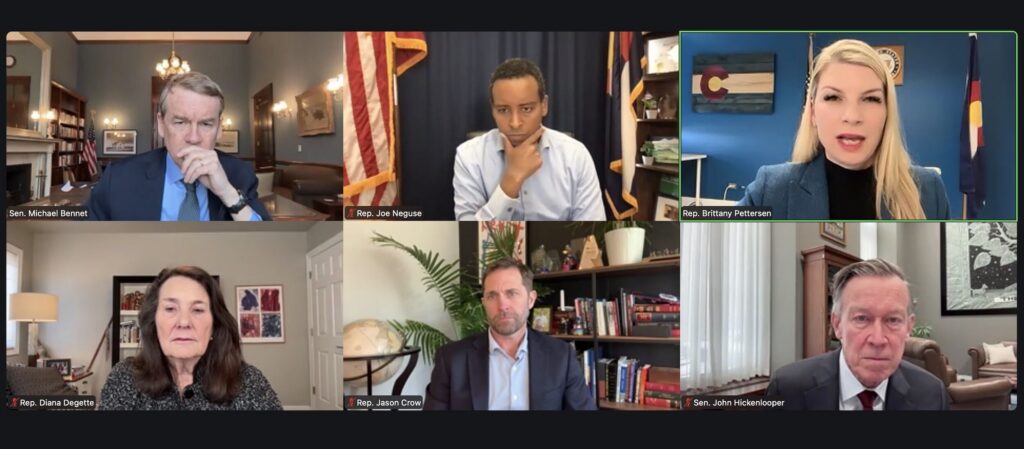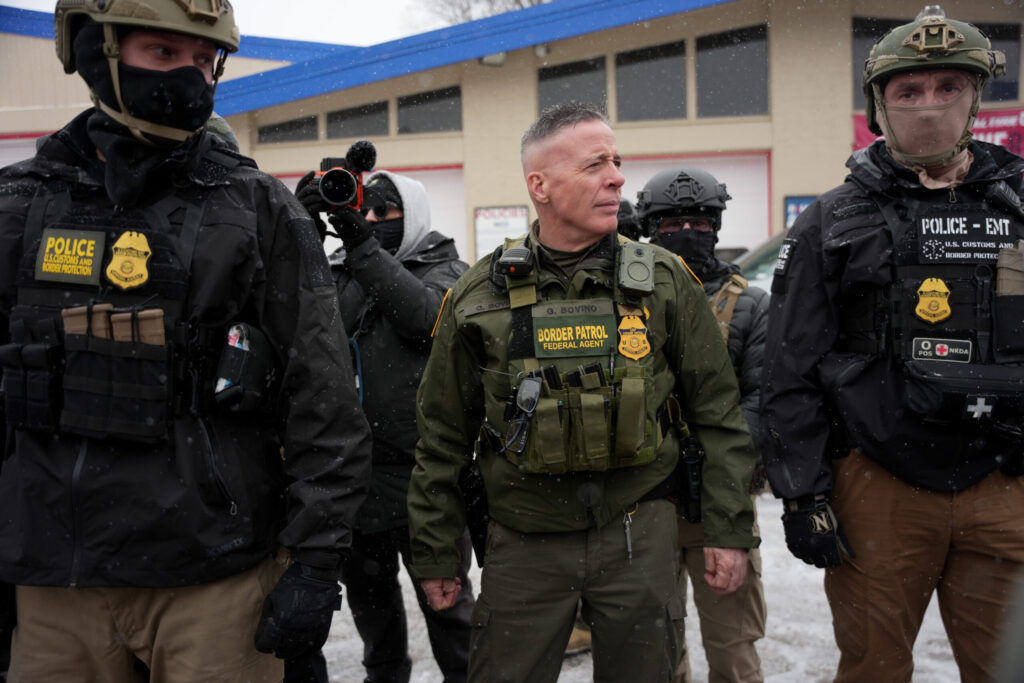New suicide-prevention program for military veterans, families gets underway in Colorado Springs

At least one military veteran or active-duty service member died by suicide every week in El Paso County last year, according to the coroner’s 2021 investigative death report released Tuesday.
“The number is upsetting,” said Damian McCabe, director of behavioral health-military affairs for UCHealth, which operates three hospitals and numerous clinics in Colorado Springs.
Of the county’s 176 deaths by suicide in 2021, 53 people had known active or previous military duty, the annual report shows. That’s a 10% increase from the previous year, when 36 active-duty or military veterans died by suicide out of 178 suicide deaths countywide.
The most common risk factors cited were relationship issues, financial struggles, substance abuse, chronic health problems, grief and legal issues.
Transitional housing center for homeless veterans in Colorado Springs closes its doors
“It’s horrible,” McCabe said. “We have made little or no impact, no matter the services or how much we have talked about it.
“Not a week goes by when we are not asked to consult on a veteran who has attempted to take their life or is still insisting they will.”
But a new pilot program spearheaded by state lawmakers aims to change that trajectory.
McCabe, who served in the military for 24 years, is leading a state-funded veteran suicide-prevention program called Next Chapter, in conjunction with Mount Carmel Veterans Service Center and the Colorado Springs office of the National Alliance on Mental Illness, or NAMI.
Up to 700 veterans and their families can receive therapy, counseling, treatment, assistance with employment and housing, and other behavioral health care – all at no cost and in a stigma-free and confidential environment.
“Cost has been a significant barrier in people seeking care,” McCabe said. “We’re trying to eliminate barriers to access.”
Food giveaway for Colorado Springs military families draws a crowd
The 2021 legislation that created the grant allocates $2.7 million for the local program for fiscal year 2023. The Colorado Behavioral Health Administration is overseeing the project at the state level.
The pilot runs through June 2025, with state funding in fiscal years 2024 and 2025 around $1.6 million annually, McCabe said.
The first clients have just started the program, which McCabe said differs from other prevention efforts in its genesis and structure.
“When we came together with these partners, we realized that no one of us has a solution – all of us have to work together,” he said. “We built on the strengths of those partners.”
Instead of creating new services, the money is being spent on prioritizing veterans’ mental health treatment, among existing offerings.
“We’re trying to integrate services in a better fashion,” McCabe said.
UCHealth will treat people needing immediate attention for a psychiatric issue and also connect family members to NAMI for support groups and get veterans into Mount Carmel Veterans Service Center’s array of assistance with food, housing, employment, personal relationships and other matters.
NAMI Executive Director Lori Jarvis-Steinwert likes that the program takes an expansive, wraparound approach to create health and well-being among veterans.
“Treatment is part of it, but it’s also having a community of support, beginning to strip away stigma, getting a chance to meet other veterans who are struggling, giving the families a chance to meet other families,” Jarvis-Steinwert said. “That will help us get to the next level as a community of understanding what it means to work in trauma-informed way.”
Suicide prevention examines stressors in people’s lives that lead to emergency department admittance and guides people to avoid reaching that boiling point.
The grant covers individualized services, such as consistent outpatient therapy, neurological care for traumatic brain injury patients or residential treatment for substance use disorder, for example, McCabe said.
“We want veterans to think about what’s next in their lives – can you see beyond the crisis into the next chapter?
Elevated levels of ‘forever chemicals’ in Security-Widefield residents, CDC report says
“If they call us or go online to a single point of access, they get a live person who will book them an opportunity to talk in person about whatever’s challenging their kids, relationships, finances, job loss, house loss,” McCabe said. “That helps us determine the level of care and best service to provide them.”
Also, premium rates will be used to incentivize providers to participate in treatment, McCabe said.
The ubiquitous lack of mental health professionals isn’t necessarily about the number of people working in the industry, he said, but more about how mental health care is funded.
About 80% of behavioral health specialists in El Paso County work in private, individual or group practice, McCabe said.
“They have businesses to run and have to make decisions on what types of patients to enroll,” he said. “It’s a challenge when you’re hoping the Veterans Administration or Medicaid will pay.”
UCHealth also will train master’s degree-level social worker candidates, therapists already in the field and organizations that work with veterans about cultural competencies in working with the population, McCabe said.
El Paso County was selected as the testing ground because it not only leads the state in deaths by suicide but also is a hot spot nationally for high rates of veteran suicides.
Success means not only reducing the statistics, McCabe said.
“Will we have more available providers who veterans can go to, if veterans who have been served turn around and volunteer to serve, if we build out peer support, if we do not have 53 deaths in 2023, and if we replicate that in 2024 … until we can reasonably say our community provides the support in making that happen, I don’t know if we can say we’re successful.”
To access services, veterans and their family members can make an appointment through the program website, www.NextChapterCo.org, or by calling 1-888-719-VETS.
2021 deaths by suicide in El Paso County
Total: 176 (down by two from 178 in 2020)
Youth suicides ages 17 and below: Decreased from record-tying high of 15 deaths in 2020 to four deaths in 2021. There were five fentanyl related deaths among teens
44: average age at death (Range of 11 to 95 years old)
32% left notes or social media posts indicating suicidal intentions
62% had history of prior suicidal thoughts
74% of autopsies contained drugs (41%), alcohol (44%) or THC (22%) at the time of death
30% have known active or prior military duty (a 10% increase from 2020)
114 people who took their lives used a gun
30 died by hanging
22 were drug overdoses
Source: El Paso County Coroner’s Office 2021 annual report released Tuesday














